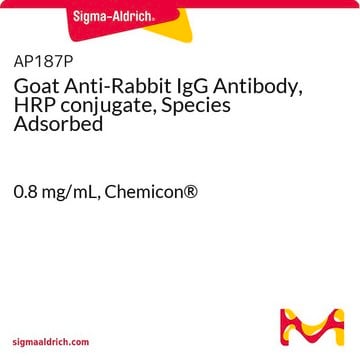SAB4200797
Anti-HSP70 antibody produced in rabbit
IgG fraction of antiserum
Synonym(s):
Anti-Heat shock 70 kDa protein
About This Item
Recommended Products
biological source
rabbit
Quality Level
antibody form
IgG fraction of antiserum
antibody product type
primary antibodies
clone
polyclonal
form
buffered aqueous solution
mol wt
~70 kDa
species reactivity
chicken, rat, canine, human, monkey, mouse, bovine
technique(s)
immunoblotting: 1:250-1:500 using different cell extracts
immunoprecipitation (IP): 10-20 μg/test
UniProt accession no.
shipped in
dry ice
storage temp.
−20°C
target post-translational modification
unmodified
Gene Information
human ... HSPA1A(3303)
General description
Immunogen
Application
Biochem/physiol Actions
Physical form
Other Notes
Not finding the right product?
Try our Product Selector Tool.
Storage Class Code
10 - Combustible liquids
WGK
WGK 3
Flash Point(F)
Not applicable
Flash Point(C)
Not applicable
Certificates of Analysis (COA)
Search for Certificates of Analysis (COA) by entering the products Lot/Batch Number. Lot and Batch Numbers can be found on a product’s label following the words ‘Lot’ or ‘Batch’.
Already Own This Product?
Find documentation for the products that you have recently purchased in the Document Library.
Our team of scientists has experience in all areas of research including Life Science, Material Science, Chemical Synthesis, Chromatography, Analytical and many others.
Contact Technical Service








